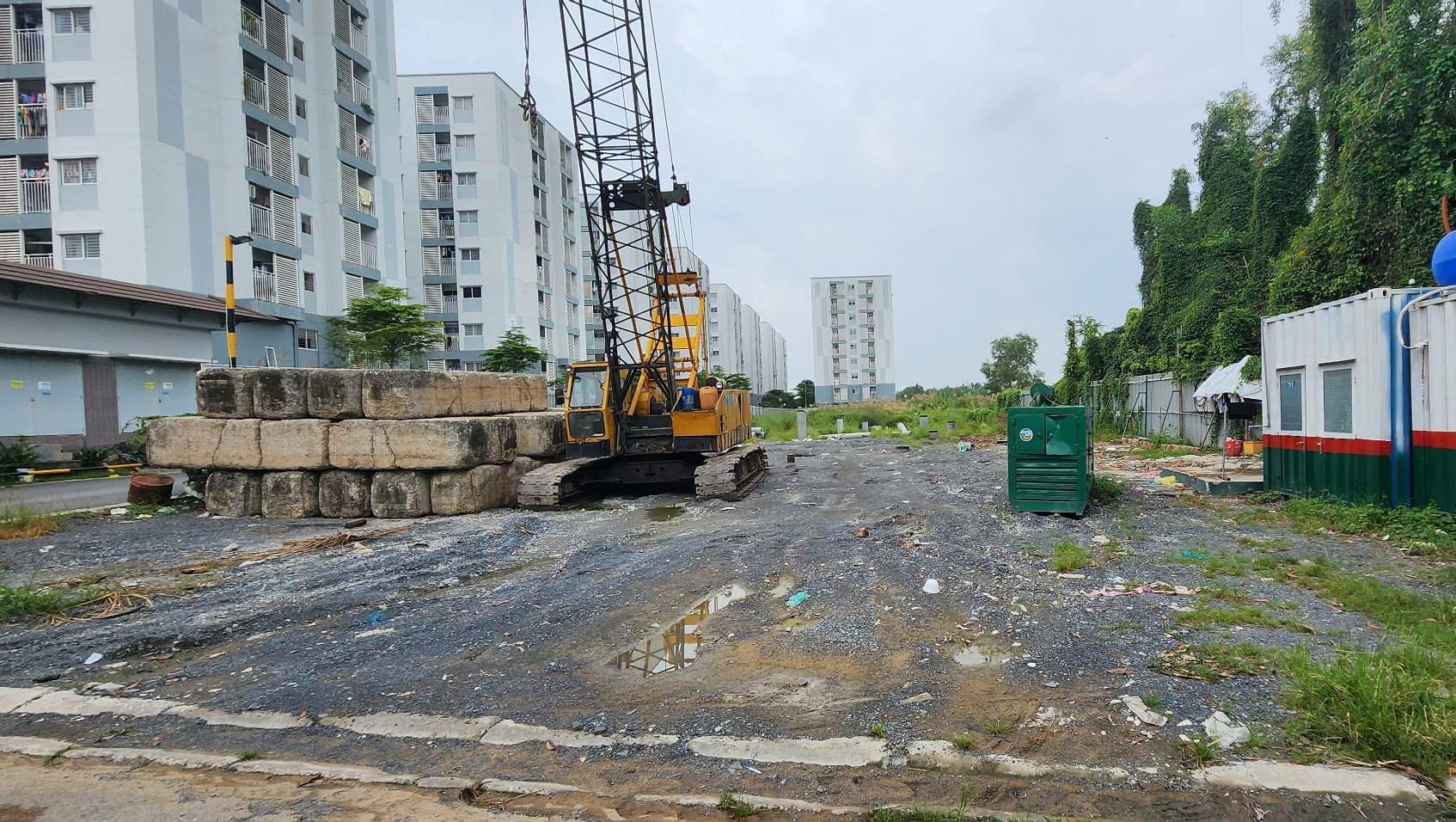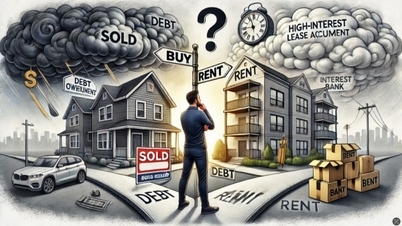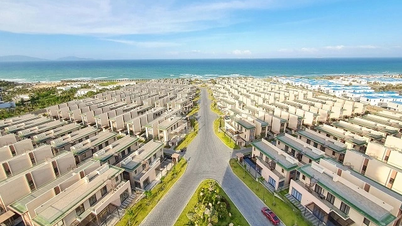According to Mr. Ngo Gia Hoang, lecturer of the Faculty of Commercial Law, Ho Chi Minh City University of Law, if the social housing policy is considered as a relief for the disadvantaged in society, the State must take responsibility. The State plays an important role in stimulating consumption, thereby creating jobs for people, promoting the consumption of goods and from there the economy will develop.
"Therefore, the State should directly invest in social housing and provide direct support for disadvantaged groups, instead of providing incentives to encourage private investment. The State needs to establish a housing management agency to centrally and uniformly manage the planning, scheduling, land allocation, implementation of social housing projects, as well as the process of housing distribution and management of social housing operations after project completion," said Mr. Ngo Gia Hoang.

A social housing project is under construction.
Mr. Ngo Gia Hoang also said that the current mechanism of allowing private investment and providing incentives to reduce costs, then issuing a series of regulations to control social housing transactions has shown inefficiency, infeasibility and difficulty in achieving the set goals. Because there is always a conflict of interests between the State (policy makers) and real estate businesses (policy implementers). Investors in social housing construction are not for the benefit of those in need but aim for the highest goal of their own profits. Business is limited in terms of customers, prices, profit margins, etc. leading to ineffective investment. Private individuals aim for self-interest, so they often do not want to invest in social housing.
Meanwhile, the investment cost of housing projects requires large and long-term capital. Enterprises wishing to participate in investment must borrow at high interest rates, and the capital recovery period is too long, exceeding their tolerance. Therefore, most enterprises only focus on investing in building commercial housing to sell to recover capital quickly and without many constraints like social housing. Building and investing in social housing seems to be only a temporary solution to solve inventory or to access financial incentives and support credit packages to overcome difficulties when the market is gloomy.
At the conference, many experts also said that the current supply of social housing is smaller than demand. Most countries build social housing for rent. In Vietnam, most low-income workers can only afford to rent houses, while investors aim to sell apartments. Most social housing rental projects are projects invested with budget capital.
Currently, those who are eligible to buy a house find it difficult to buy because they cannot afford to pay the interest and principal of the bank loan. On the contrary, those who are able to pay the interest and principal of the loan are not eligible. This is the paradox of social housing policy and is not true to the nature of social housing, which is housing for the poor. Because the poor can hardly think about buying a house, when there are many other problems to worry about.
In addition, the process of approving the subjects to buy, rent, and lease-purchase social housing is still loose, depending on the investor, so sometimes it is not the right subjects, the house price is pushed up, which deviates from the humane policy of the State. Therefore, it is appropriate for the State to invest in social housing for rent or lease-purchase. It will be difficult for the tenants to take advantage of the policy because when they buy, they can resell it for profit. The State builds a housing fund for rent, while retaining the property for the next people, without having to build more houses. At the same time, there is a housing fund to stabilize when the real estate market fluctuates.
Source link


![[Photo] Panorama of the Opening Ceremony of the 43rd Nhan Dan Newspaper National Table Tennis Championship](https://vphoto.vietnam.vn/thumb/1200x675/vietnam/resource/IMAGE/2025/5/19/5e22950340b941309280448198bcf1d9)

![[Photo] President Luong Cuong presents the 40-year Party membership badge to Chief of the Office of the President Le Khanh Hai](https://vphoto.vietnam.vn/thumb/1200x675/vietnam/resource/IMAGE/2025/5/19/a22bc55dd7bf4a2ab7e3958d32282c15)
![[Photo] General Secretary To Lam attends the conference to review 10 years of implementing Directive No. 05 of the Politburo and evaluate the results of implementing Regulation No. 09 of the Central Public Security Party Committee.](https://vphoto.vietnam.vn/thumb/1200x675/vietnam/resource/IMAGE/2025/5/19/2f44458c655a4403acd7929dbbfa5039)
![[Photo] Close-up of Tang Long Bridge, Thu Duc City after repairing rutting](https://vphoto.vietnam.vn/thumb/1200x675/vietnam/resource/IMAGE/2025/5/19/086736d9d11f43198f5bd8d78df9bd41)





























![[Photo] Prime Minister Pham Minh Chinh inspects the progress of the National Exhibition and Fair Center project](https://vphoto.vietnam.vn/thumb/1200x675/vietnam/resource/IMAGE/2025/5/19/35189ac8807140d897ad2b7d2583fbae)



























































![[VIDEO] - Enhancing the value of Quang Nam OCOP products through trade connections](https://vphoto.vietnam.vn/thumb/402x226/vietnam/resource/IMAGE/2025/5/17/5be5b5fff1f14914986fad159097a677)



Comment (0)